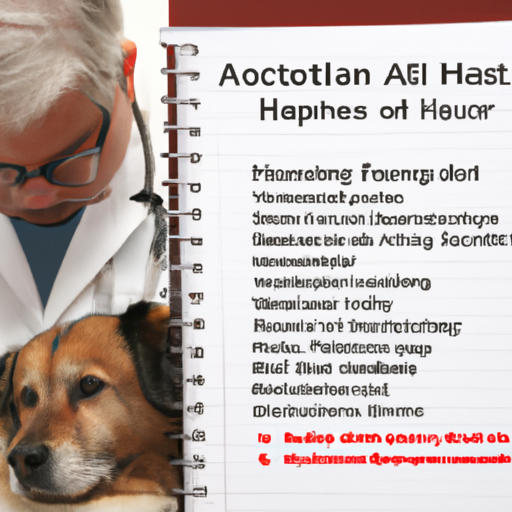Heart failure in dogs is a condition that can be difficult to detect, but being aware of the symptoms can be crucial for your pet’s health. Just as in humans, heart disease in dogs is a serious health concern and requires prompt attention. As a caregiver, understanding the symptoms of heart failure in dogs can make a significant difference in your pet’s prognosis and quality of life.
Table of Contents
- Understanding Heart Failure in Dogs
- Common Symptoms of Heart Failure in Dogs
- Lesser-Known Symptoms of Heart Failure in Dogs
- How to Detect Heart Failure in Dogs
- Treatment Options for Dogs with Heart Failure
- Frequently Asked Questions
Key Takeaways
- Heart failure in dogs can present a variety of symptoms, including coughing, difficulty breathing, and fatigue.
- Prompt detection and treatment can improve your pet’s quality of life and prognosis.
- Regular vet check-ups are essential for early detection of heart disease in dogs.
Understanding Heart Failure in Dogs
Heart failure is a condition where the dog’s heart is unable to pump blood efficiently, leading to a buildup of fluid in the lungs, abdomen, or other parts of the body. This condition can be caused by various factors, including underlying heart disease, age, breed, and obesity. Your dog might be at risk if they are older, overweight, or belong to a breed that is genetically predisposed to heart problems, like Cavalier King Charles spaniels or Doberman pinschers. You can read more about breed-specific health concerns on OneTopDog.
Common Symptoms of Heart Failure in Dogs
- Coughing: This is often the first sign. If your dog is coughing frequently, especially after physical activity or at night, it could be a symptom of heart failure.
- Difficulty Breathing: Dogs with heart failure may breathe rapidly or struggle to catch their breath.
- Fatigue: If your dog tires quickly, especially after mild exercise, it could be a sign of heart disease.
- Loss of Appetite: Dogs suffering from heart failure may lose interest in food or have difficulty eating.
Lesser-Known Symptoms of Heart Failure in Dogs
Some symptoms of heart failure in dogs may not be as immediately recognizable. These can include:
* Changes in Behavior: Dogs with heart disease may become less active or show signs of depression.
* Swelling: Fluid buildup can cause swelling in the abdomen, making your dog look bloated.
* Fainting or Collapsing: In severe cases, dogs with heart failure may faint or collapse due to lack of oxygen.
To keep your pet in the best health, it’s vital to be aware of these symptoms and seek veterinary attention if you notice anything unusual. For more tips on keeping your dog healthy, visit OneTopDog.
How to Detect Heart Failure in Dogs
Early detection of heart failure in dogs can significantly improve your pet’s prognosis. Regular vet check-ups are essential, especially as your pet ages. These visits should include a physical examination and may also include blood tests, x-rays, or an echocardiogram.
Moreover, you can also keep track of your dog’s resting respiratory rate (RRR) at home. This is an easy and non-invasive way to monitor your dog’s heart health. You can find a guide on how to do this at OneTopDog.
Treatment Options for Dogs with Heart Failure
While heart failure in dogs is a serious condition, there are treatment options available that can improve your dog’s quality of life. Medications can help manage symptoms and slow the progression of the disease. In some cases, a special diet or weight management program may also be recommended. For more information on treatment options, consult with your vet or visit this resource.
Frequently Asked Questions
-
Can heart failure in dogs be cured?
Unfortunately, heart failure is a progressive disease and cannot be cured. However, with proper treatment and care, many dogs can live a happy, comfortable life for many years after diagnosis. -
How is heart failure in dogs diagnosed?
Diagnosis usually involves a physical examination, blood tests, x-rays, and an echocardiogram. Your vet will look for signs of fluid buildup, changes in heart size, and any abnormalities in heart function. -
What breeds are most at risk for heart failure?
Certain breeds are more prone to heart disease, including Cavalier King Charles spaniels, Doberman pinschers, and Boxers. However, any dog can develop heart disease, so regular vet check-ups are important for all breeds.
In conclusion, being aware of the symptoms of heart failure in dogs and seeking prompt veterinary attention can make a significant difference in your pet’s health and quality of life. Regular vet check-ups, a balanced diet, and moderate exercise can go a long way in maintaining your dog’s heart health.



